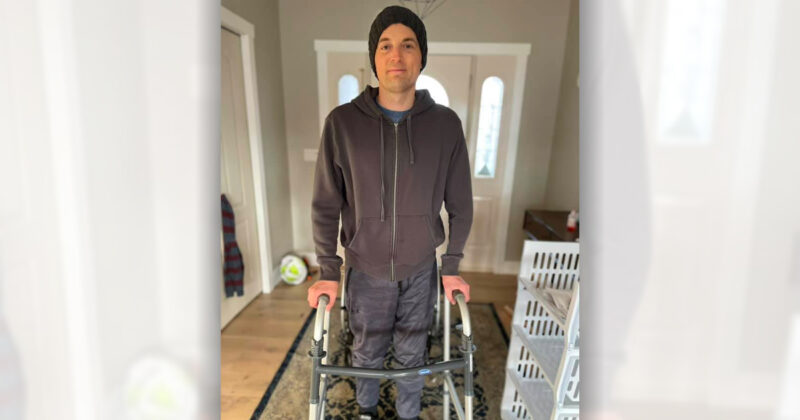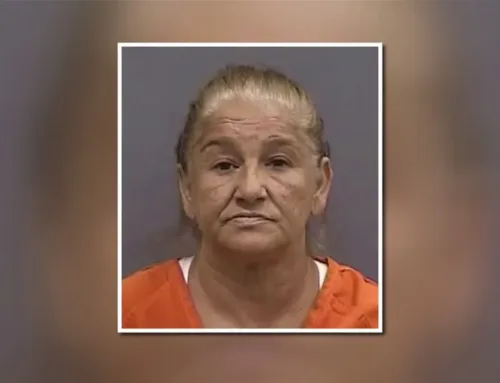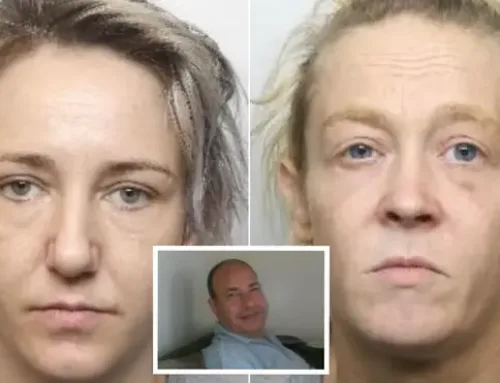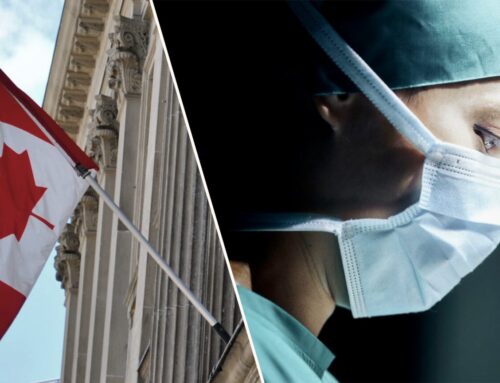Andrew Kozak
Published:June 7, 2022
-True North
Ross Wightman from B.C. is one of the first Canadians to receive compensation from the federal government for sustaining injuries after receiving a Covid-19 vaccine shot.
Wightman received the AstraZeneca vaccine in April 2021 and was diagnosed with Guillain-Barré Syndrome (GBS) shortly after. The condition left him partially paralyzed.
Wightman alleges that his symptoms started with severe back pain just 10 days after his first and only shot, and went to the emergency room multiple times. He was admitted when he reported facial tingling.
“I had full facial paralysis. I could blink but I couldn’t smile or show my teeth at all, and had paralysis from the waist down as well: Wightman told the National Post a few days after being admitted.
GBS is an autoimmune condition in which the immune system attacks the peripheral nerves. This can lead to weakness, pain, numbness or even partial paralysis.
After spending more than two months in the hospital, Wightman is now recovering at home.
On May 20, 2022, Wightman received a letter from the Canada Vaccine Injury Support Program (VISP) and posted it on social media. The letter said that the VISP had concluded that his injuries were likely a result from the vaccine and that he was eligible for compensation.
“First and foremost, we would like to offer you our deepest sympathies for your ongoing health struggles. We wish you the strength and support to sustain you during this difficult time and wish to thank you for submitting a claim with the VISP,” the letter reads.
“Following an assessment of your case, it has been determined by our Medical Review Board that there is a probable causal association between the injury(ies) sustained an the vaccination. As such your claim has been approved for compensation.”
According to Wightman, the process to receive compensation from the government was long but receiving the letter linking his injuries and the vaccine was vindicating.
Four hundred people have filed claims with the VISP between June 1 2021 and November 30 2021. According to the VISP website, Wightman is one of less than five people who have been approved for compensation for injuries sustained from the vaccine. The next public report will be released soon.
The maximum sum a person can receive through the VISP is $284 000. Wightman did not disclose the specific amount he was given, but said he did not qualify for the maximum amount. He told CTV News that he is eligible for income replacement of up to $90 000 per year.
Wightman says his recovery process has not been linear. “When I was discharged I could walk, assisted, 30, 40 feet and I would be gassed.”
Now he says he “can now go for a slow 40-minute walk,” but as a typically active person, “it’s a far cry from where I was before.”
Canadians have been urged to get vaccinated by public officials throughout the pandemic, as governments across the country issued vaccine passport regimes in order for Canadians to access basic goods and services.
Further, in September 2021, an interview with Prime Minister Justin Trudeau resurfaced where he referred to Canadians who refuse the Covid vaccine as “extremists who don’t believe in science, they’re often misogynists, also often racists.”
While some restrictions have been lifted in Canada, many mandates continue to exist. Right now, only those who have been fully vaccinated with a Health Canada-approved vaccine may board a plane or train. The federal government’s travel restrictions have resulted in long delays at Canada’s airports. Despite pressure by business organizations and opposition MPs to lift all remaining restrictions, the government recently extended its travel restrictions until at least June 30.
Exemptions for vaccines are extremely rare and are issued on a case-by-case basis by the airline under certain circumstances such as sincere religious belief or medical inability to get vaccinated.




